The History of Caritas in Germany
9 November 1897: Foundation of the German Caritas Association
Since the mid-19th century, Catholic social politicians had been demanding a centralised organisation devoted to Catholic charity. The young priest Lorenz Werthmann achieved this goal with great dedication. He initiated the "Charitas Committee” ("Charitas-Comité”) in Freiburg, in the spring of 1895, paving the way for the foundation of the "Charitas Association for Catholic Germany” ("Charitasverband für das katholische Deutschland”) in Cologne on 9 November 1897. The newly founded association soon started helping people facing social hardship: seasonal workers, seamen, vagabonds, alcoholics, people with physical or mental disabilities and people suffering from venereal disease. Lorenz Werthmann founded kindergartens, children’s homes, shelters for girls and institutions for patient care and women’s welfare.
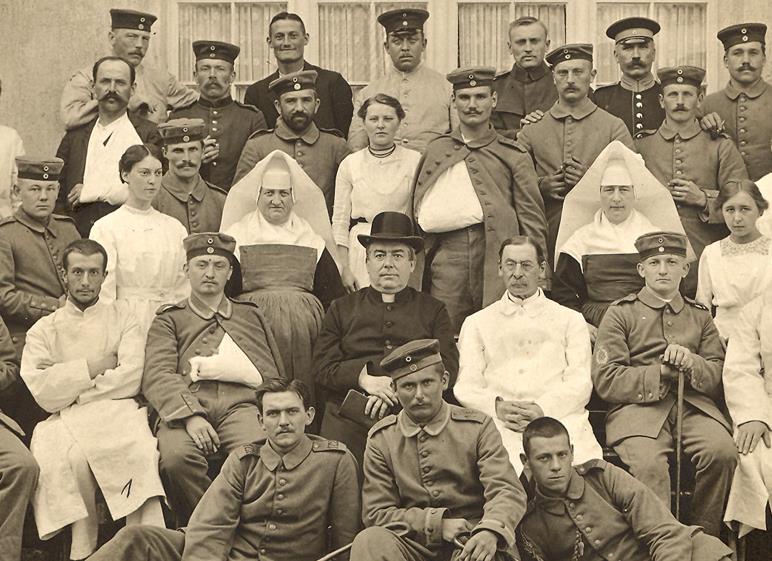 The first Caritas President, Lorenz Werthmann, visiting a military hospital in 1914.Image: German Caritas Association
The first Caritas President, Lorenz Werthmann, visiting a military hospital in 1914.Image: German Caritas Association
Beginning of the 20th century: Sustainable structures for social professions
World War I brought new kinds of social hardship to people in Germany. In 1916, German bishops established the Caritas Association as the social service of the Catholic Church and ensured their funding. When the first Caritas President Lorenz Werthmann died five years later, the Association had established a firmly structured organisational base. His successor, President Benedict Kreutz, continued this process. In the 1920s, he created a network of training facilities for social professions as well as advanced training programmes for the association’s personnel. The emphasis was on the welfare of children and youth, patient care and counselling.
With Agnes Neuhaus’ foundation of the social services of Catholic Women (Sozialdienst katholischer Frauen - SKF), social work became a profession. You can read more about this in our fictional interview: Agnes Neuhaus sets the precedent for Catholic welfare, social services and women’s labour
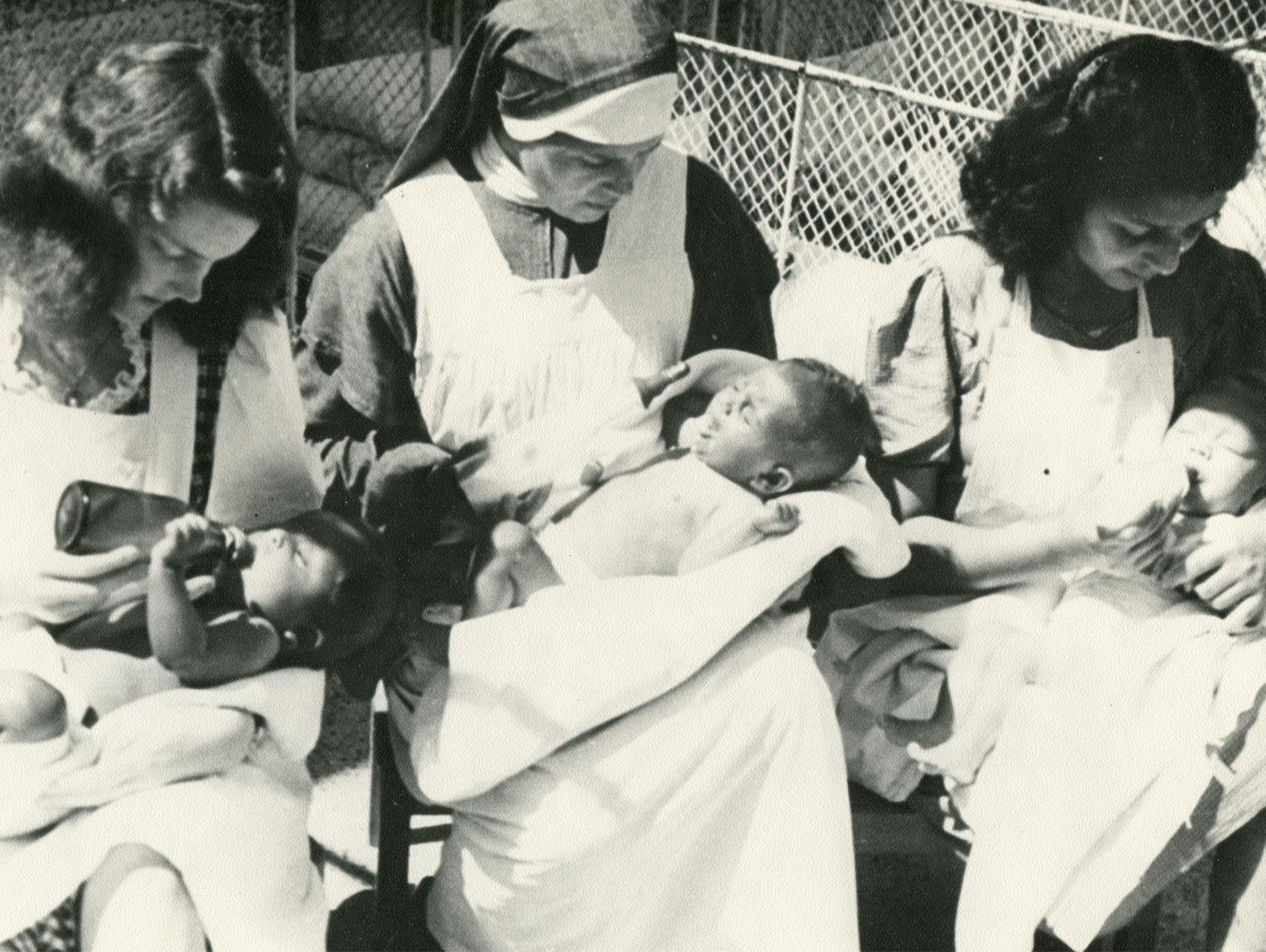 Since the foundation of children’s welfare: Three female employees of the baby ward of the former welfare association of Catholic women for girls.Image: German Caritas Association
Since the foundation of children’s welfare: Three female employees of the baby ward of the former welfare association of Catholic women for girls.Image: German Caritas Association
During the Third Reich: Caritas continues its work despite control
The friendly cooperation between the state and free welfare organisations ended in 1933 with the dictatorship of the National Socialists. Public welfare was subject to increasing pressure. Although they were controlled, monitored, constricted, intimidated by arrests of personnel at the main office and locally, the German Caritas Association continued its work and was the only welfare association to withstand being "coordinated”. However, there were conflicts with the National Socialist "Volkswohlfahrt” (the welfare ministry of the German National Socialist government): their biologistic ideology led to forced sterilisations and, from 1939 on, to the so-called euthanasia programme, in which disabled people and people with psychological conditions were murdered.
Find out more about the then Caritas President, Benedict Kreutz, and his stance on the National Socialists in our report: From Friends to Foes: Caritas President Kreutz and the National Socialists
There were many in the Catholic Church who opposed the killing of allegedly unworthy life. They did not submit, but instead put up a fight and were therefore fought against and repressed by those in power. Like Gertrud Luckner, for instance, who strongly supported Jewish people during the Third Reich. It was thanks to her international contacts that many people were saved. She also assisted countless deportees. In addition, though, there were Catholics who offered no resistance as well as clerical institutions and Caritas employees who helped to cover up or abet murder.
Read more about Gertrud Luckner’s resistance: Ambassador of Humanity and Righteous Among the Nations
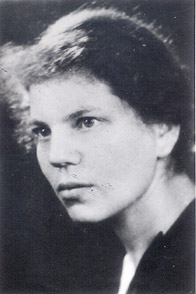 Caritas employee Gertrud Luckner: She was arrested by the National Socialists on 24 March 1943 for being a “Catholic activist and fanatical adversary of National Socialism”.Image: German Caritas Association
Caritas employee Gertrud Luckner: She was arrested by the National Socialists on 24 March 1943 for being a “Catholic activist and fanatical adversary of National Socialism”.Image: German Caritas Association
Post-World War II: Caritas as reliable support
After World War II, the Caritas Association was the only cross-regional organisation (besides the newly founded public social aid of the Protestant Church) which was immediately able to start its work caring for the destitute public. By procuring extensive foreign aid, enabling refugee relief and reuniting families, Caritas significantly contributed to attenuating of the effects of the War. President Kreutz died in 1949 - the founding year of the Federal Republic of Germany - as post-war destitution was slowly subsiding.
After World War II, Caritas was immediately ready to act: However, many facilities had been destroyed and the suffering was considerable.Image: German Caritas Association
From the 1950s to this day: Caritas also assists abroad
In the 1950s, the German Caritas began providing international emergency relief and catastrophe management, thereby adding new key aspects to their traditional tasks at home. This was also motivated by the memory of foreign support Germany had received after the War. Today, Caritas international, as part of the German Caritas Association, provides emergency relief and catastrophe management to over 80 countries worldwide. The public social aid is commissioned by the German bishops.
Read more about one of Caritas’ first foreign projects in the year 1968 in our report: With Georg Hüssler Caritas became international
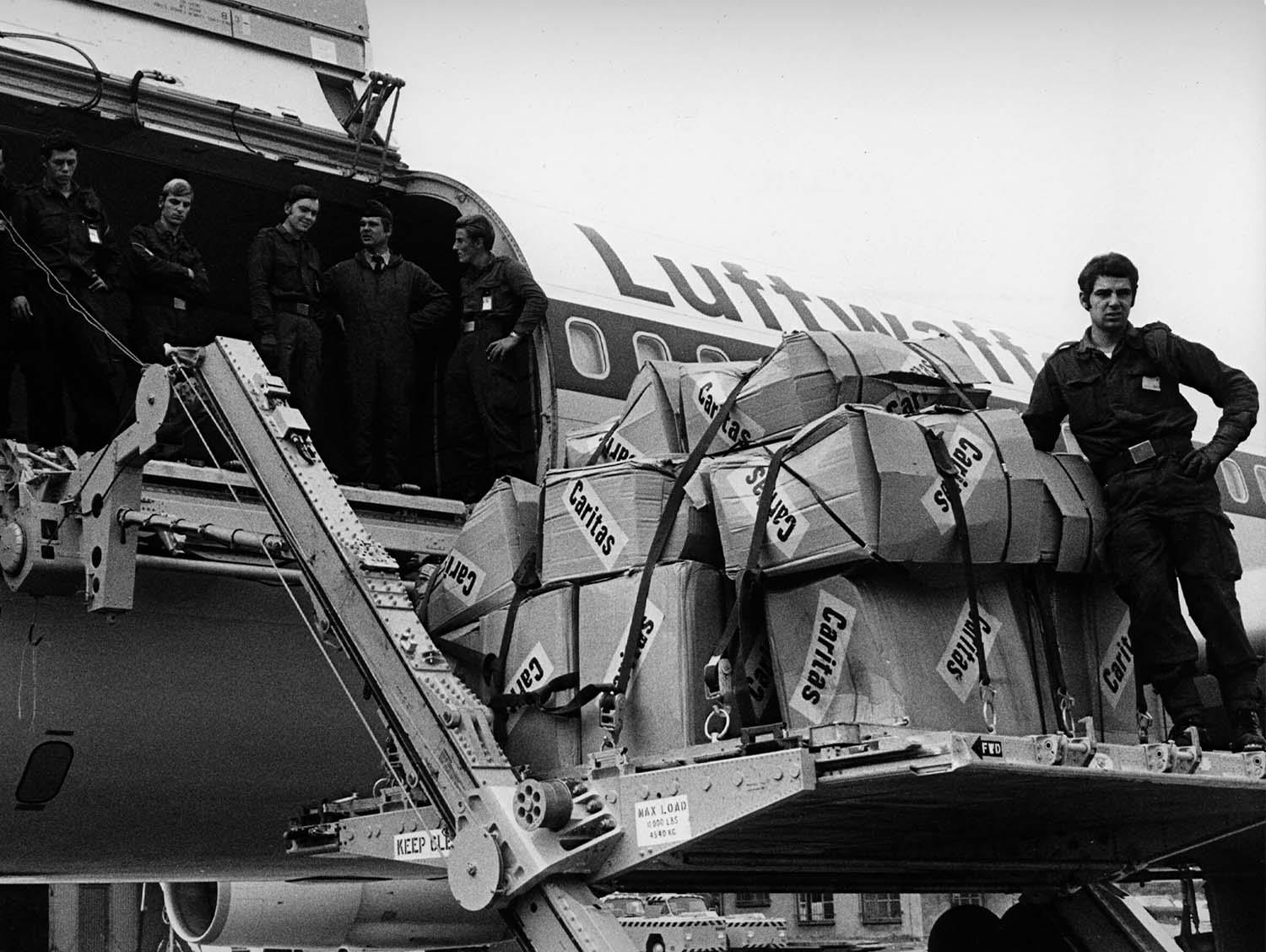 Caritas has been assisting worldwide since the 1960s. Here, help to the flooded areas in Tunisia and Algeria is being delivered by plane.Image: KNA
Caritas has been assisting worldwide since the 1960s. Here, help to the flooded areas in Tunisia and Algeria is being delivered by plane.Image: KNA
1945 to 1989: Caritas and the GDR (German Democratic Republic)
In 1951, the German Caritas Association established headquarters in Bonn, the new capital of the Federal Republic of Germany. Two years after the foundation of the GDR, in the year 1949, no one believed that Germany would reunify anytime soon. It was at this time that another office was opened in West Berlin in addition to the one in Bonn. An eastern branch office was also set up in St. Hedwig’s Hospital in the Soviet-occupied part of Berlin in 1951. From this point on, the office was caught up in the tension between welfare and politics - especially during shifting political regimes. Clerical reconstruction would not have been possible in the Soviet-occupied areas without the help of the German Caritas Association from West Germany. It supported Caritas work in the GDR financially as well as in real terms. At the beginning of the 1960s, Caritas and Diakonie, the only two public social aid organisations in the GDR, served as a makeshift for an insufficient health and social welfare infrastructure, as well as procurers of foreign currency to the GDR government.
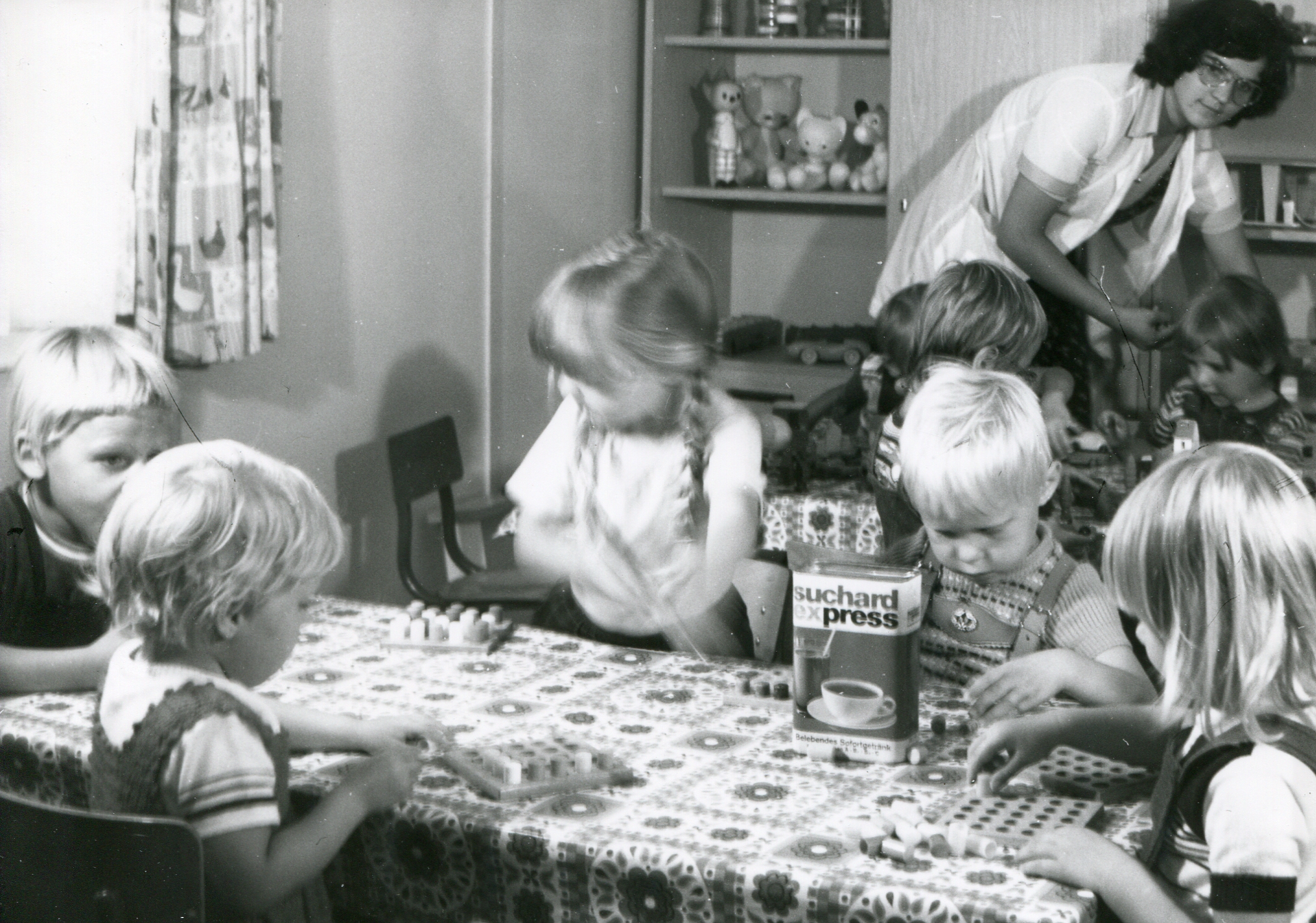 Despite the separation: Caritas work was also carried out in the GDR. Here is a kindergarten in Neustrelitz in the 1970s.Image: German Caritas Association
Despite the separation: Caritas work was also carried out in the GDR. Here is a kindergarten in Neustrelitz in the 1970s.Image: German Caritas Association
After the fall of the Berlin Wall, the people in charge of both the West and the East Berlin offices advocated for the recognition of professional qualifications obtained in the GDR and for additional supplementary benefits for the Caritas employees in the GDR. They fought for the future of the training facilities and successfully pursued the plan of a Catholic university in Berlin.
Find out more about Caritas’ day-to-day work in the GDR in our portrait of Klara Ullrich, who assisted people who wanted to leave the GDR:
Working for Caritas in the GDR: "I knew what I was getting myself into.”
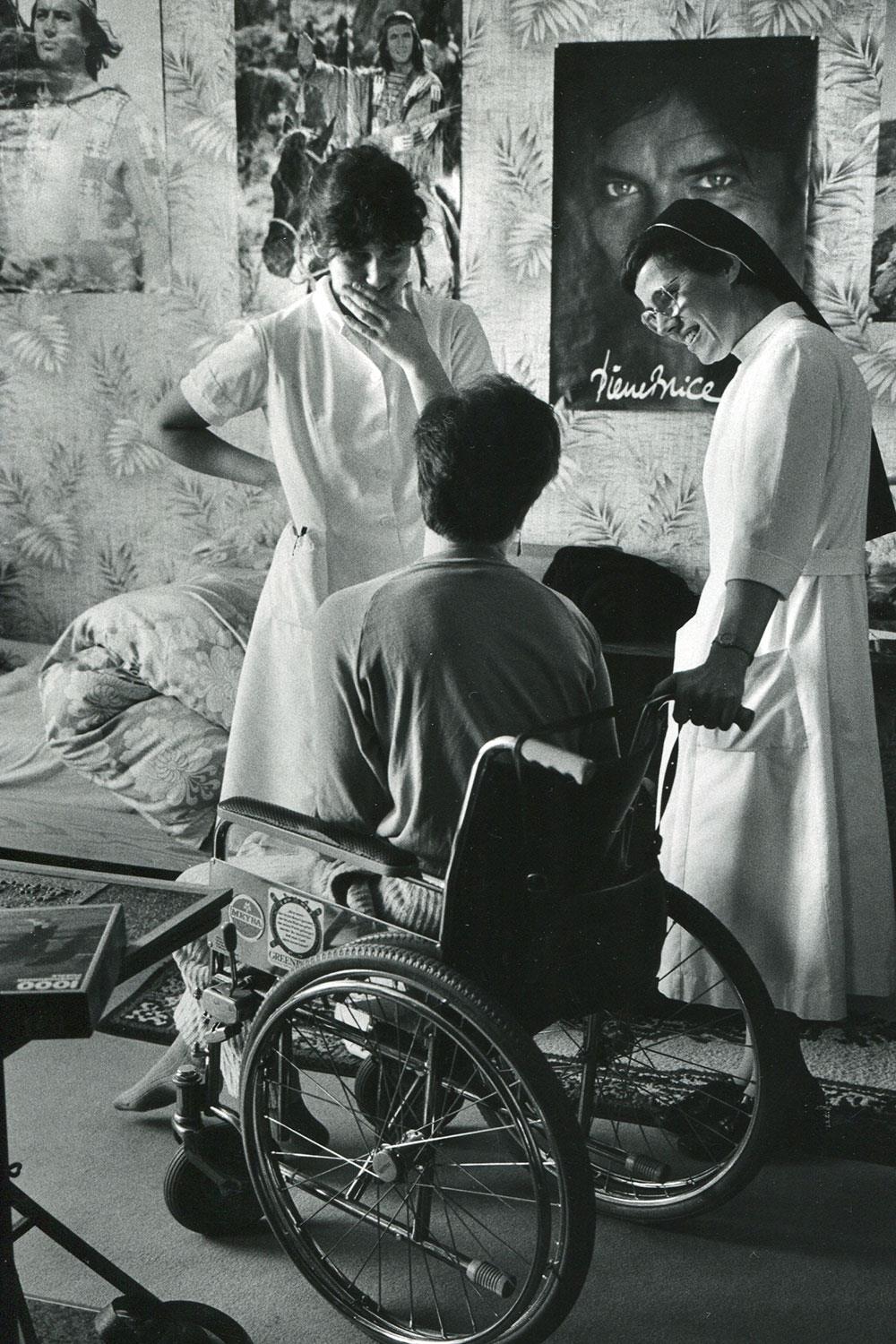 Caritas work in the Federal Republic of Germany in the 80s: Homecare was meanwhile established.Image: German Caritas Association
Caritas work in the Federal Republic of Germany in the 80s: Homecare was meanwhile established.Image: German Caritas Association
Germany’s political reunification in 1990 also had an effect on Caritas: that same year, Caritas managed to successfully rebuild the East German Caritas Associations. The associations of the former GDR refounded or newly founded themselves as legally independent registered associations and have henceforth been part of the German Caritas Association. Since the opening of the Iron Curtain, the German Caritas has contributed to the systematic establishment of social welfare in Eastern and Southern European countries.
On the pulse of the times: Caritas commences itsinitiatives
Since 2006, the German Caritas Association has consolidated three of its annual campaigns as one initiative carried by the entire association to further promote these developments on a public, cross-association and political level. These initiatives always revolve around one topic:
The Enablement Initiative [Befähigungsinitiative] (2006-2008) for better initial and life circumstances for children and youth, the Participation Initiative [Teilhabe-Initiative] (2009-2011), the Solidarity Initiative [Solidaritätsinitiative] (2012-2014), the Demography Initiative [Demografie-Initiative] (2015-2017) and the Initiative for Social Cohesion [Initiative für gesellschaftlichen Zusammenhalt] (2018-2020).
The 2000s: Communication changes
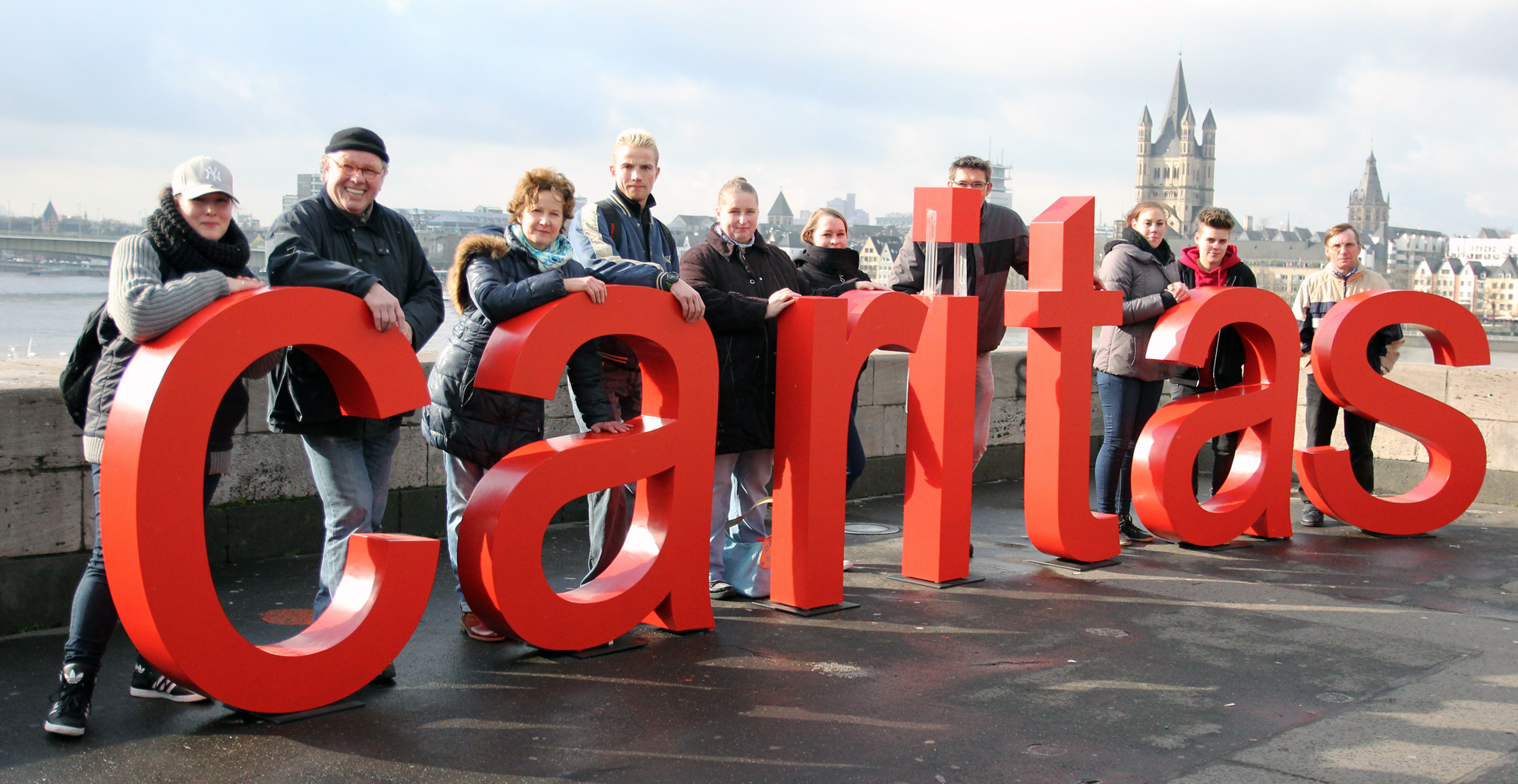 More than 650,000 full-time employees worked at Caritas’ entities, associations and facilities in 2016.Image: Klinkhammer/Diocesan Caritas Association Cologne
More than 650,000 full-time employees worked at Caritas’ entities, associations and facilities in 2016.Image: Klinkhammer/Diocesan Caritas Association Cologne
The internet and digitalisation have become increasingly relevant for our communication, including the ways people choose to seek help. This is why Caritas offers digitalised help via its online media, in keeping with its original mission of "seeing suffering and taking action”.
Caritas connects, informs and comments on social media, where they also launch digital campaigns. In 2017, the entire association launched its campaign "Vote for humanity” on social media, prior to the Bundestag election in 2017. In the summer and autumn of 2015, Caritas starts supporting refugees arriving in Germany, enabling their new beginning as well as taking a stance against far-right hate speech and agitations.
Access Caritas’ online support on our website:
www.caritas.de/hilfeundberatung/onlineberatung
Read more about the campaign "Vote for Humanity” here:
Wählt Menschlichkeit (caritas.de)
2020: Caritas’ online support is realigned
At all times, Caritas strives to develop appropriate solutions. Since 2019, the Association has been facing new social challenges. The most pressing of these challenges is the estimation of the risks and opportunities that digitalisation may bring to social work and society. Our new online support successfully passed a first test in 2020, making Caritas’ services accessible at all times, despite the lockdowns caused by the Covid-19 pandemic.
You can find our campaign "Social Needs Digital” in our campaign archive, accessible here: www.caritas.de/magazin/kampagne/sozial-braucht-digital
Going forward: Social causes during and after the pandemic
To this day, Caritas remains a strong and dependable asset of the welfare state. The Covid-19 pandemic has clearly proved the worth of social welfare safeguards, such as compensation for reduced working hours, insolvency protection, free antigen tests, medical equipment, etc. Caritas advocated for all of these measures politically, as well as helping people locally. The pandemic has clearly shown that major future challenges lie ahead: children suffering from poverty, debt incurred as a result of increasing energy costs and more people threatened by homelessness. This indicates how crucial social security measures will remain to the social fabric, and for the cohesion of our society.
CHRONOLOGY
Important moments in the history of the German Caritas
- 1897
On 9 November, a group of Catholic social reformers in the circle of the priest Lorenz Werthmann form the "Charitas Association for Catholic Germany” in Cologne. - 1916
The German bishop’s conference recognises the Caritas Association as the official social services of the Catholic Church. - 1921
After the death of Lorenz Werthmann, Benedict Kreutz becomes the new President of the "German Caritas Association” (DCV) as the Association is called from this point on. The Association launches its first foreign relief operation in Soviet Russia, where it provides food and clothing to the country’s starving people. - 1922
All German dioceses now have a diocesan Caritas Association. - 1925
Catholic caritative care maintains more than 10,000 facilities in Germany. - 1933-1945
The DCV survives the years of unlawful National Socialist rule as a working entity, although it is constricted, threatened and suffers the loss of means, buildings, freedom and even the lives of employees. However, not everyone offered resistance. Some Catholics, clerical facilities and employees did not defy the regime and thus helped to cover up and abet murder. - 1945
In the first years after the war, the German Caritas Association primarily assists with the procurement of foreign gift parcels for the suffering German public, with the care for refugees and displaced persons and with the reunification of separated families. Caritas begins to re-establish earlier social services and facilities as well as founding new ones. - 1950s
There are national Caritas organisations in over 30 countries worldwide. Since 1951, they have been linked by the umbrella organisation Caritas Internationalis, whose headquarters are located in Rome. - Around 1960
The DCV reinforces its foreign aid during natural and war catastrophes while still supporting disadvantaged persons in the FRG and GDR. The Caritas headquarters in West Berlin increasingly turn into a central point for delivery and transhipment for Caritas’ work in the GDR. Money and material goods stemming from West Germany or western foreign countries are distributed in the GDR to enable caritative work. - 1990
The German Reunification also had an effect on the German Caritas, ending an over 40-year-long forced separation. The Caritas Associations of the former GDR re-established or newly founded themselves as registered associations. In their statutes, they state that they are part of the German Caritas Association. - 1991
For over a generation, Caritas’ development is closely connected to Prelate Dr Georg Hüssler’s presidency, which he decides to end after 22 years, at the age of seventy. - 1991-2003
With Prelate Hellmut Puschmann, born in Dresden, a person coming from the Caritas Associations of the East German federal states is appointed head of the Catholic welfare association. - 1997
In May, the central council, as the highest quorate committee within the Association, issues guiding principles for the German Caritas Association. These include tasks and goals, challenges and new perspectives. They also refer to the theological foundation and contain statements about the organisation and performance profile. On 9 November, the German Caritas Association celebrates its centennial. - 2003
Dr Peter Neher becomes the new President (and is re-elected in 2008 and 2015). - 2004
Caritas international, the public social aid of the German Caritas Association, launches its largest relief operation to date. It manages to provide immediate aid to over 500,000 people in the countries of Southeast Asia hit by the tsunami. - 2006
As the first German welfare association, the German Caritas Association offers its support services online. In the year 2021, more than 12,000 messages a month were exchanged between Caritas counsellors and people seeking help via the online support platform. - 2013
Prelate Dr Georg Hüssler dies in Freiburg at the age of 91. Hüssler strongly influenced Caritas over a long period of time as President of both the German and the International Caritas Associations. - 2021
Eva. M. Welskop-Deffaa is appointed President of the German Caritas Association. For the first time in history, Caritas is run by a woman. - 2022
The German Caritas Association celebrates its 125-year jubilee. Caritas exists in over 160 countries worldwide, where it follows its main principle "See a need and act on it”.


